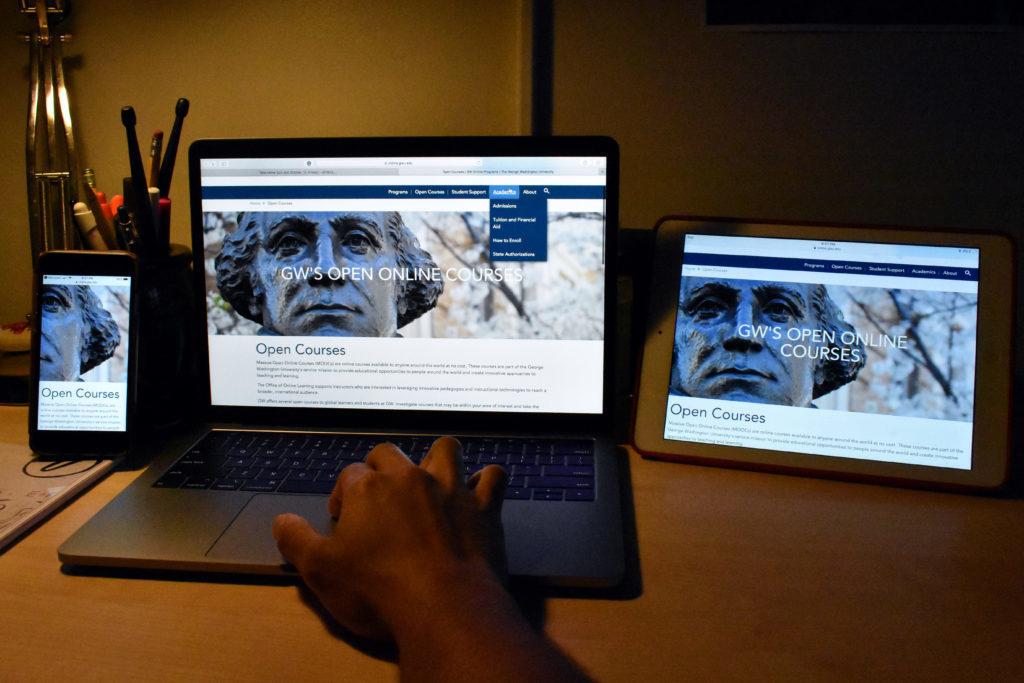Two free online courses that GW has offered for nearly five years were phased out this summer, officials said.
The classes – a business school course about the Federal Reserve and a law school course about patent law – were nixed this summer after first launching in 2012. Officials said the courses were “outdated” and the cuts fall in line with GW’s online learning strategy, which has shifted in recent years to focus on smaller courses.
University spokeswoman Maralee Csellar said massive, open online courses are not a focus of GW’s online strategy.
She said the Past, Present and Future of the Federal Reserve was based on a class that was taught in 2012 by Federal Reserve Chair Ben Bernanke and was phased out because several years have passed since the original course was taught. The Patent Law and Policy class was made obsolete because regulations and laws have changed in recent years, she said.
The University currently offers MOOCs on nursing, aerodynamics and computer coding that students anywhere in the world can enroll in with no cost.
Csellar added that GW is emphasizing the development of online courses with smaller, “seminar-style” courses. She said faculty continue to develop MOOCs, which are “a small part of our online portfolio.”
She said the smaller courses, which are not offered for free, “is not where online education has gained the greatest traction across the country in recent years.”
“GW is focusing its online strategy on offering lower enrollment online courses that provide opportunities for faculty and students to work and interact with each other in an online format,” Csellar said.
About 10 percent of GW’s revenue stream came from online classes last year. Concerns arose last fall about how closely the University’s online programs were monitored, leading to a Faculty Senate resolution that asked faculty to be consistent with the regulation of online learning.
Online learning experts said the most popular online courses today focus on programs that could generate revenue for a university and teach students marketable skills, like computer science.
Ravi Ravishanker, the associate dean of the MOOC provider WellesleyX at Wellesley College, said universities that offer MOOCs are facing the financial constraints of producing expensive programs for no monetary return on investment and, like GW, are focusing more on courses that can generate revenue.
“I think in short what is happening is the panacea of offering such quality courses all the time for free is just not working out,” he said.
Dhawal Shah, the founder of online course search engine Class Central, said the online providers of MOOCs are turning toward courses that can advance professionals’ knowledge in their field and in skills that are more marketable, like machine learning or coding.
“If they want to learn new skills or get better at what they already know, there aren’t a lot of avenues to do so if you want to learn from the university,” he said.
He added that developing MOOCs is expensive if professors and instructional designers have to be paid to create them, and sometimes software and updated technology has to be added for new courses.
Emily Joy Bembeneck, the associate director of pedagogical innovation in the Graham School of Continuing Liberal and Professional Studies at the University of Chicago, said updating classes can be time-consuming for faculty, but if they are engaged in the classes and the students, professors can still produce courses.
She said that at the University of Chicago, her job is to encourage faculty to develop their online classes, which involves reminding them about the impact they are having on students’ professional development.
“You see them around campus and trying to make it a personal relationship around the project,” she said.





